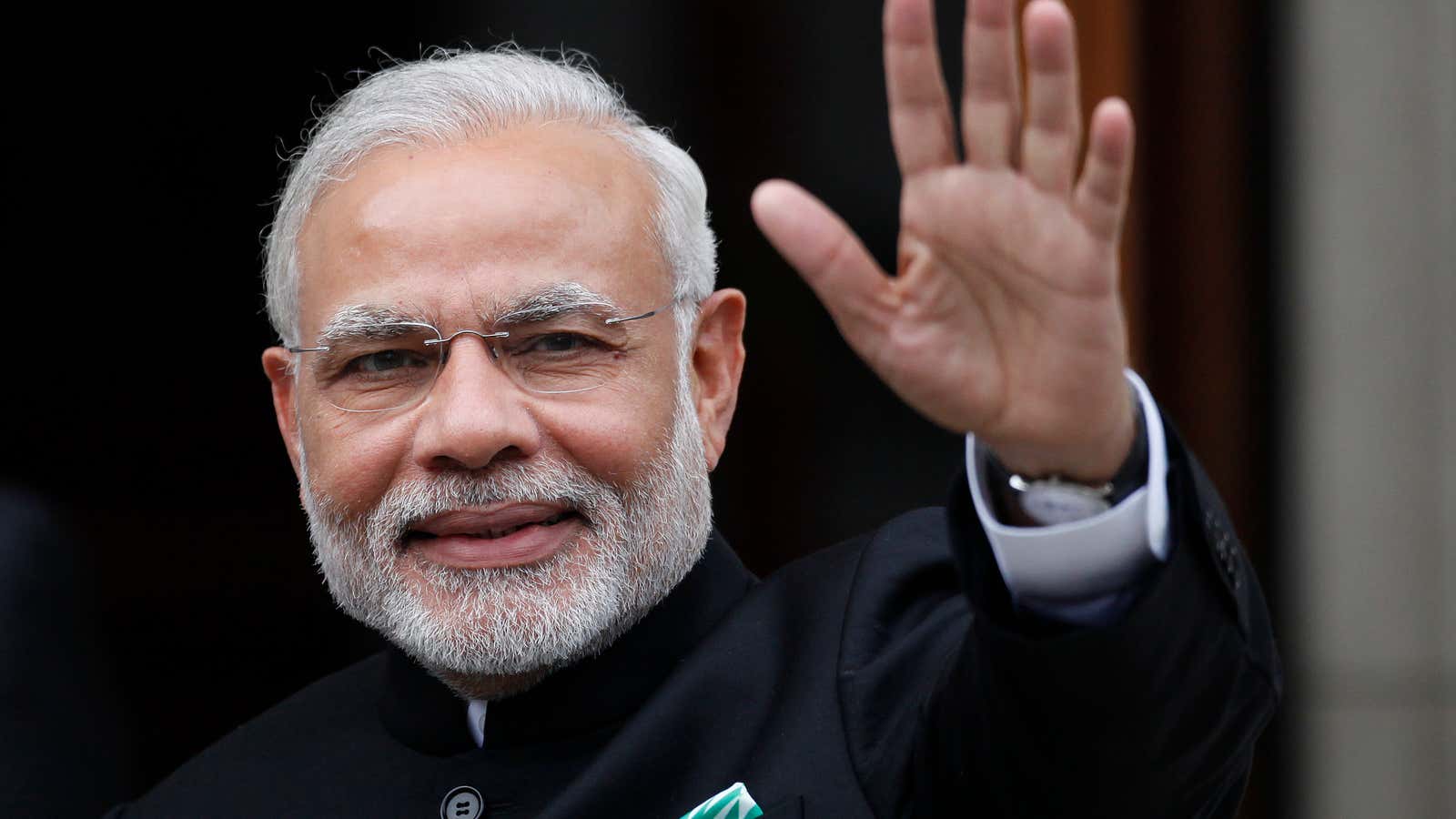Indian prime minister Narendra Modi has a busy tech-filled weekend ahead of him. But even before he’s set foot in Silicon Valley, Modi got a warm welcome from Sundar Pichai, the incoming CEO of Google and one of the most visible Indians in the tech industry.
“The bond between India and Silicon Valley is strong,” said Pichai in his two-minute video message. ”There is tremendous excitement for your visit amongst all Googlers” and the broader Indian community.
As part of his whirlwind tour, Modi will be visiting the campuses of Google, Tesla, and Facebook. A reception will also be held for him by the Indian diaspora at San Jose’s SAP Center, which has the capacity to hold more than 17,000 people.
Pichai, who grew up in Chennai and attended the prestigious Indian Institute of Technology (IIT), will officially take the reins of Google later this year. Having worked his way to the top of arguably the world’s most influential tech company, 43-year-old Pichai’s personal story has resonated strongly with the Indian community.
“The products built by Indian graduates from IIT and other institutions have helped to revolutionize the world, but it is India that is now undergoing its own revolution,” he said, referring to Modi’s Digital India initiative. The program aims to connect all 1.25 billion people in India to the internet. As of June, the Digital India plan had connected 1% of the 250,000 villages it hopes to bring online.
“This will have great benefits for everyone in the country,” Pichai continued. “We’ll get people online for the first time, people in rural areas, Indic language speakers, girls who will learn new skills and have successful careers, and businesses of all sizes will be able to find new customers.”
Throwing Google’s weight behind Modi’s Digital India plan, he noted “there is no more important role for tech companies today than helping to connect the next billion internet users.”
Google has worked to create slimmed-down versions its mobile operating system, Android, and some of its apps, so they perform better in low-bandwidth environments or when offline. The company is also experimenting with beaming internet to people in remote areas via balloons. Facebook has its own ambitious plan to bring internet via lasers and drones. Pichai predicts 50 million women and 20 million small businesses will come online in the coming years.
“We hope your visit will energize people in the valley, excite Indians all across the country, and renew and strengthen our partnership,” he concluded.
